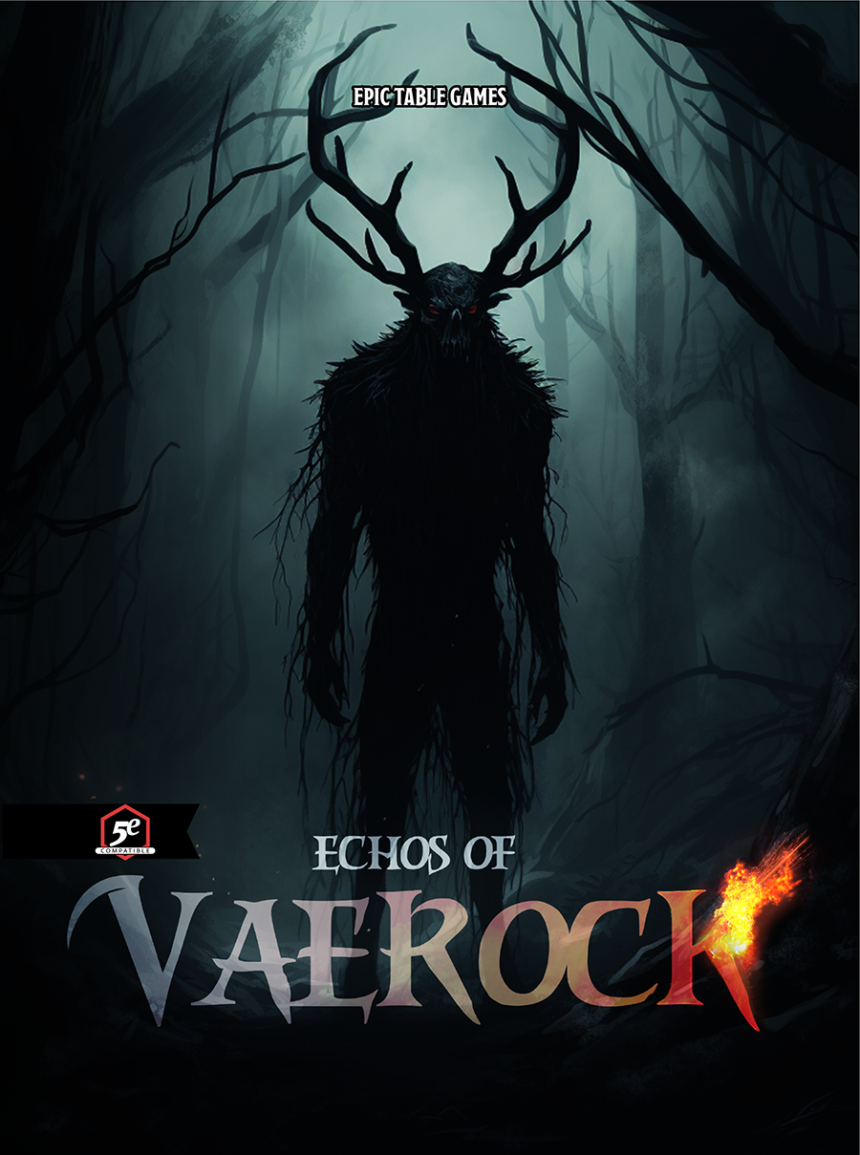Note: this was supposed to go up last week and I have zero idea why it didn’t. Sorry about that! -T
Hey there, everyone, and welcome back to your seat at the Epic Table! Today we’re continuing last week’s look at the 14 games presented in 9th Level Games’ Free RPG Day anthology, Level 1. We saw the first seven games last week (sort of), and we’ll finish everything we didn’t cover last week in this week’s edition.
Yeah. Including that one.
Rainbow Bridge
Content Warning for this section: Pet death
As you may recall, I absolutely refused to touch this game last week. In general, I stand by that decision. Pet death is a topic with which I’m profoundly uncomfortable, and I hadn’t intended to review it.
And then, in the week between then and now, a good friend let myself and others know that their beloved cat had passed away.
This friend loved their cat, and loved sharing stories of the cat’s gremlin antics with our friend group. We all loved to hear about them. We’ll all miss the stories. I wanted to honor the memory of that cat and what the stories meant to us (and to me personally). So I thought I’d try to do so by describing this game. This review is therefore dedicated to my friend and their cat.
Rainbow Bridge will make you cry. I don’t think that’s a surprise to anyone. It’s very freeform, with nothing in the way of resolution rolls—play focuses purely on roleplaying. And yeah, you’re roleplaying out the afterlife of pets that have passed on. This game would have absolutely failed had it not treated that with kindness and love.
I think the game absolutely nails it, though. It invites players to consider some of their pet’s happiest times and memories, as well as where they might find themselves next. I think out of all the games in the book, this is the one that actually deals with the concept of endings best. If you’ve ever owned a pet of any kind, you’ll find some comfort here, I think. The endings of the game push towards hope, happiness, and most of all love.
I don’t know that I’ll ever play this game, and if I do, I’ll certainly break down in tears. But as a piece of design, I think it’s masterfully done.
Labyrinth
You remind me of the game. What game? The game with the power. What power? The power of voodoo. Who do? You do? Do what? Remind me of the game!
And with that opening which was obviously absolutely mandatory (don’t @ me), let’s talk about Labyrinth!
This is another game that, unfortunately, is really cool but fails at a single mechanical point. The game itself is about wandering an impossible labyrinth while having no idea who you are and being pursued by a (metaphorical, largely) minotaur. There’s a lot of flesh to this idea, despite the necessarily abbreviated nature of the rules. I could see playing it as-is, of course, but I’m also intrigued by the idea of playing this as some form of anti-intrusion software in a cyberpunk game.
The problem is, the game is missing a key component. There are a series of cards that are given out by the GM which represent memories slowly coming back. When they’re all given out, the climax occurs. Unfortunately, there’s no guidance whatsoever about when the cards should actually be given out. This means that the system basically doesn’t work without a major repair that also drastically affects the game.
If you’re willing to do that repair work, though, Labyrinth has some deep potential to it.
Are You Lost, Traveler?
This game is almost the complete opposite of all the others in the book: it’s a fairly complete mechanical system, but with the absolute bare minimum amount of story possible. The hook is great—you all play as characters exploring dead MMORPG servers—but there’s really not much to work with here besides a resolution system. There’s nothing at all for actually developing the systems to explore besides “pick 2 keywords for player and the GM adds one, then figure it out.” I’ll definitely be stealing this idea for a setting, but running it in a game system I already enjoy.
Dear Marley
I am a terrible person to review this game, because I absolutely hated high school. I don’t think it’s really necessary to get into the reasons why; I’m sure you can imagine. As such, games where we all pretend to be high school kids and more or less friendly are not really my cup of tea. This is one of those, and it’s a weird one.
The game is about developing your relationship to a fictional person named Marley, who was the glue that held your friend circle together. You flesh out yourselves and Marley, talk about shared experiences, and eventually write a yearbook message to Marley. Frankly, to me this sounds horribly unfun. But I guess someone out there enjoyed high school, so this game might be for them.
Hauntrification
Okay, so a number of these games run off something called “Polymorph,” which is a game engine created by 9th Level Games. I’m starting to think that the reason that so many of these games don’t describe all their mechanics is that some of them are using the Polymorph system and leaning on its definitions. Which would be great if there was some kind of an SRD available for it.
Anyway, Hauntrification is basically “Beetlejuice: The Game.” You’re all ghosts, some mortals come along to mess up what you’re haunting, you decide what to do about it. The rules make the choice to make each type of ghost really good at one thing and really bad at everything else, which I think is a mistake—it’s definitely a game where everyone will end up trying to force everything they do to be the one thing they’re good at. The game itself is, in a word, pedestrian: a fairly by-the-numbers implementation of the engine we’ve seen a few times at this point.
ARC
It’s really hard to review ARC without basically restating the entire game, which is:
- Players pick a thing.
- Someone decides on a desire the thing has.
- Players vote on whether the desire happens.
- Repeat until the time limit runs out, which will happen in 4-10 votes.
I’m not sold on this being fun. Certainly not more than once.
Atop The Burning Heap
I feel like I’m being really negative today. I want to like these, but I really feel like the stronger games have already come and gone.
AtBH is entirely deterministic. A playing card gets revealed at random as an obstacle; whether it’s overcome or not is entirely defined by other playing cards revealed at random. Sure, you and your group can narrate how this happens, and you can decide at the end if it was worth it, but you’re not actually playing a game. This is a prompt generator.
An Epic Ending
I’m not gonna dunk on the name, because that’s free real estate and I already did the Labyrinth thing earlier. Instead, you get a mini-rant about Powered by the Apocalypse!
The thing about PbtA is that it’s not a game engine (although Vincent Baker, creator of Apocalypse World, is in fact currently working on one). It’s a game design philosophy that commonly gets mistaken for an engine. And one of the ways that happens is when people decide to create A PbtA Game.
A PbtA Game (as opposed to just a PbtA game—you know, without the capitals) is a fairly paint-by-numbers experience. Try Something Challenging generic move with no/yes but/yes structure? Check. Agendas, principles, and GM moves? Check. Battle move that is basically AW’s Seize By Force? Check. If you’ve played one you’ve played them all, because these games don’t understand the need for bespoke moves to make games sing.
Anyway, this is one of those. If you’ve ever played a PbtA game before, you can safely give it a pass.
An Actual Ending
And there we have it! 14 games reviewed. There are definitely a couple in there that I’d recommend, too. Let us know your favorites in the comments!
The contents of this post are © 2024 H. Tucker Cobey. All rights reserved.





